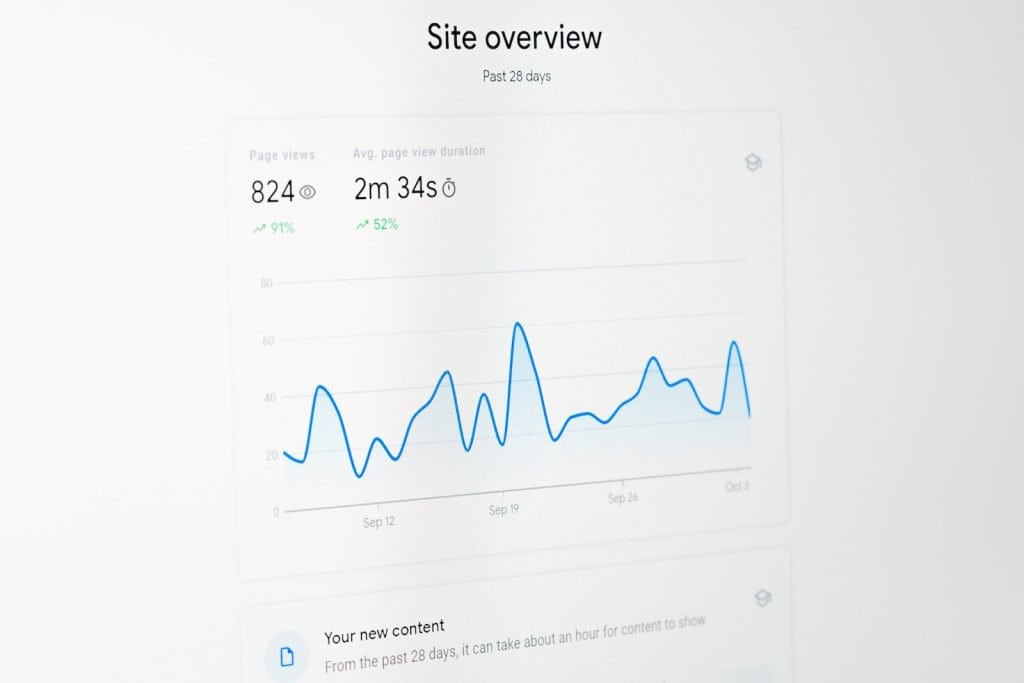
There are real business threats out there, but which ones are worthy of your attention?
This is the time of year we’re all wrapped up in optimism. Well, not everyone. There’s a few folks out there sitting in what my friend likes to call “their pee pants” and worrying about things.
Just to be clear, there are definitely things worth stressing over, and, at the same time, the things you’re worrying about are – well, useless.
I’ve been keeping a list of the things folks have told me they are worried about and a list of things I think they should really worry about.
Don’t Be Afraid of: AI is a Threat to Humanity
AI is NOT taking over anytime soon. I know, the ChatGPT thing is incredible, and yes, AI has an IQ of 155 (Einstein was 160) and yes, they found out that AI can do math (this is a really big deal). But for AI to take over, there have to be SO MANY more advancements. We all know people with high IQs. who can do math and who can write a sentence, but that doesn’t make them ready to overtake humanity. Well, we all know people who can’t do any of these things and are threatening humanity, so we have a lot more important things to deal with today than AI taking over the world
Let me ease your mind. AI is evolving and that can be scary, but it’s going to take SO MUCH more research development and coordination to make that happen. Seriously, if you worked with AI (even a little bit) your mind would be eased.
Should you be concerned – sure, any amazing tool in the wrong hands can destroy humanity. Should you be afraid today? No.
So, what should you be worried about when it comes to AI? Unless you’re a celebrity, public figure or politician, the likelihood of your voice and likeness being used against you is low. If you’re an online marketer or content creator, you should definitely keep an eye out for people swiping your content and making it yours.
But don’t live in fear.
Read More:
This article from MIT will help you breathe easier
Be Very Afraid of: Language Inflation and Over-the-Top Promises

This is something you really SHOULD be afraid of. Yes, the meaning of words evolves over time, but we’ve been experiencing “Language Inflation” for so long that we’ve become desensitized to such an extent that we’ve become word-blind.
What’s language inflation? Language inflation refers to the devaluation of the meaning of words over time. As marketers, we are the biggest offenders. Think about the use of words like awesome, epic, guru, ninja, transformation, genius, ridiculous, etc. You’ve seen these words used on sales pages, advertisements, and social posts so much that they really don’t mean anything anymore.
This is so real that when Threads and ChatGPT launched the joke in marketing circles was how long before people start calling themselves gurus and experts and start selling courses. (It actually took less than 48 hours before I saw the first courses pop up).
This doesn’t do anyone any favors. Sure, there are those folks who want to attract the “suckers” who take them up on their offers, but all that’s going to do is increase your rate of dissatisfied customers.
There’s an old saying out there that anything taken to its extreme becomes the opposite. And I’m guessing that you’ve experienced this as both a consumer and a marketer.
And the consequences are already obvious, customer complaints are up, and I’m seeing so many digital marketers going overboard to drive attendance and sales to everything.
The answer isn’t louder language – the answer is in the experience and results you create.
It’s more important than ever to work on identifying your ideal customer, their issues and problems and doing everything you can to solve them quickly and affordably.
Be Curious About: Dropping Traffic to Your Website

And, we’re back to the impact of AI on website traffic. I’m not sure if we’re short-sighted or stupid here. Maybe I’m just old enough to have lived through a couple MASSIVE technology shifts like HDTV and the internet to know that a new technology means that how we do things is going to change, but the underlying outcome will always be necessary.
For example, getting access to information will always be with us. HOW we access information has changed.
I used to go to the library and sit there for hours sifting through card catalogs and microfiche, wandering through stacks, and taking notes. A simple essay would take me 20 hours to write because I had to spend 5 hours at the library, 5 hours taking notes and 10 hours at the typewriter retyping pages over and over again because they weren’t lined up properly to fit the footnotes exactly 1 inch from the bottom.
Now, this same essay would take about 5 hours because I didn’t have to drive and sit in a library, I could look sources up on Google, and I can type it up on my computer. The output is the same, the technology of how I got there has changed.
Let’s get back to website traffic.
Now, 40 years later, Google is the library and AI search is the new internet. And it’s my opinion that this is a great thing. Here’s why.
When you do a Google search, you get a list of what Google thinks are sources that are most likely to answer your question. You click around reading each one. That’s a lot of time wasted on sites that don’t have the answer you’re looking for. And that translates to traffic with a high bounce rate and Google dings you for that. So that traffic wasn’t REAL traffic.
With new search engines like Perplexity.ai (and Bing and Google eventually) the AI will search through PAGES of traffic based on your question. That means that if you create very specific content that’s targeted to your ideal customer and the questions and problems they are solving, well, your site will get found.
But wait – it gets even better. The traffic you DO get will be more qualified traffic.
Let me explain.
When you get a summarized result from the AI:

You’ll have a summary of answers with sources. So when you decide to actually click on one of those sources, you will spend MORE time there because you’ve already seen the result.
Here is that same search on Google.

Notice how the AI has skipped the sponsored ads and given you its choices for where to start your research.
When you click on any of these “footnotes” searches, you’re going to spend MORE TIME there because the AI has already sifted through what it thinks is the irrelevant content.
Personally, I think this is great for search because it will (once again) force us into creating helpful content for our audience and NOT for the search engines.
For as long as online content has been around, successful content marketers have told you to write for your audience, this is one thing that hasn’t changed, nor will it change. So relax.
Don’t Be Afraid of: AI Taking Jobs
Every new technological advancement will look like it’s eliminating jobs – but it’s not. Instead it’s shifting the focus of the job from something manual and mindless to something automated and mechanical.
Look at it this way.
Writers will become editors and word artists – creators and AI will work hand in hand – just like engineers and calculators. Instead of using your brain to do tedious tasks, the AI will shift and push us to become BETTER at creating the desired outcome.
Start playing with AI tools right now, learn how to engage and how to generate output. Give yourself time to be in awe of how good it is and to also experience how bad it is at being human.
Be Very Afraid of: Labeling ALL AI Generated Content
I’m sorry, but stuff like this is what tells me that people that make rules have never used the tool.
Do you label every document you create on your computer with “This document was written on a computer.” Do you label every calculation or spreadsheet with “These numbers were calculated in Excel” – NO you do not because we all recognize that these are tools that help us get to our desired outcome faster.
AI is not a person, AI is a tool. It’s a machine that helps us do our work faster to get to a desired outcome.
Even today we have ghost writers who create content that was never labeled “written by a ghost writer”, we have designers who create content for us and who are never given credit.
AI is no different than your computer, your calculator, or any person you hire to do something on your behalf.
Be Curious About: Economic Disruptions
Economic disruptions are scary, and definitely worthy of fear. But when you take a minute to understand why we fear disruptions, it’s because we go through our lives thinking that they aren’t going to happen. So when they do, we freak out.

The real question is WHY? It’s not a question of “if” a disruption will happen, it’s a question of “when”. In fact, even the “when” isn’t a question. You can expect some type of economic disruption about every 2 years (give or take).
So, you shouldn’t be afraid of disruptions, you should set yourself up to withstand the next one.
1. Build a Diverse Revenue Stream: Don’t put all your eggs in one basket. If your business relies solely on one product, service, or customer base, you’re more vulnerable during economic downturns. Diversifying your revenue streams can help stabilize your income. Think about introducing complementary products or services, exploring new markets, or even offering digital products that aren’t as affected by physical market changes.
2. Maintain a Lean Operation: Keeping your expenses as low as possible without sacrificing quality is key. This doesn’t mean cutting corners but being smart about where your money goes. Invest in technology that improves efficiency. Outsource non-core activities. Streamline your processes. During times of economic uncertainty, a lean operation can pivot and adapt much faster than a bloated one.
3. Cultivate Strong Relationships with Customers and Suppliers: Strong relationships can be your safety net. Loyal customers are more likely to stick with you during tough times. Keep them engaged and appreciated. Similarly, good relationships with suppliers can lead to more flexible payment terms or better deals, which can be a lifesaver when cash flow is tight. Remember, in business, relationships are often as valuable as the product or service you offer.
By implementing these strategies, you’re not just preparing for potential economic disruptions; you’re building a more resilient, agile business capable of thriving in any climate.
Turn Business Threats into Triumphs
In wrapping up, let’s remember that fear, especially in the business world, often stems from the unknown or misunderstood. But here’s a twist: instead of letting fear grip you, let it be a trigger to wield your ‘SWOT sword’ – a tool to dissect, understand, and ultimately conquer these challenges.
When you hear a report or trend that triggers fear, reframe it as a ‘threat’ in your SWOT analysis. This isn’t just fear-mongering; it’s a call to action, an opportunity to revisit and refresh your SWOT analysis. Look beyond the surface of these reports and trends. What opportunities are lurking beneath the immediate threat? How can you adapt and evolve?
Psychologists say that fear often comes from not having enough information about something. So, if you’re not fully grasping the basics, you’re more susceptible to misinformation. Don’t just take things at face value. Return to the very definitions of what’s being discussed, understand the economic mechanisms behind the reports, and most importantly, analyze.
As you navigate through AI advancements, language inflation, shifts in online marketing, or economic disruptions, keep your SWOT analysis close. It’s your secret weapon to turn threats into triumphs, fear into foresight, and challenges into opportunities for growth and innovation.
Embrace each challenge not with fear, but with curiosity and strategic thinking. That’s how you’ll not just survive, but thrive, no matter what the business world throws your way.







